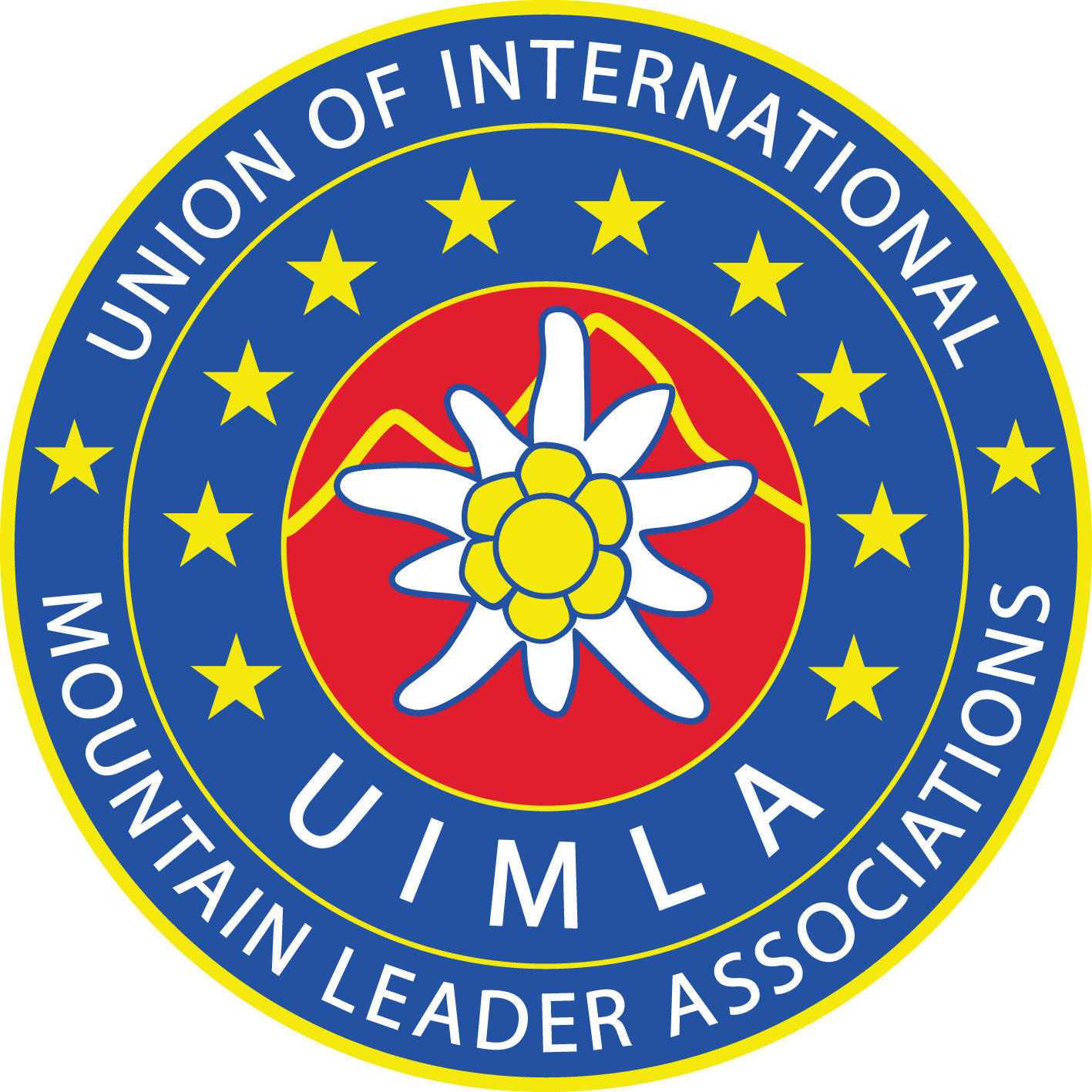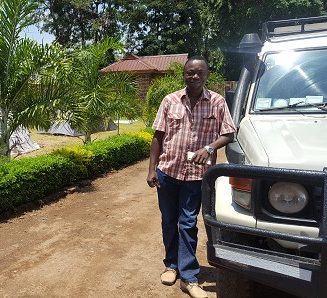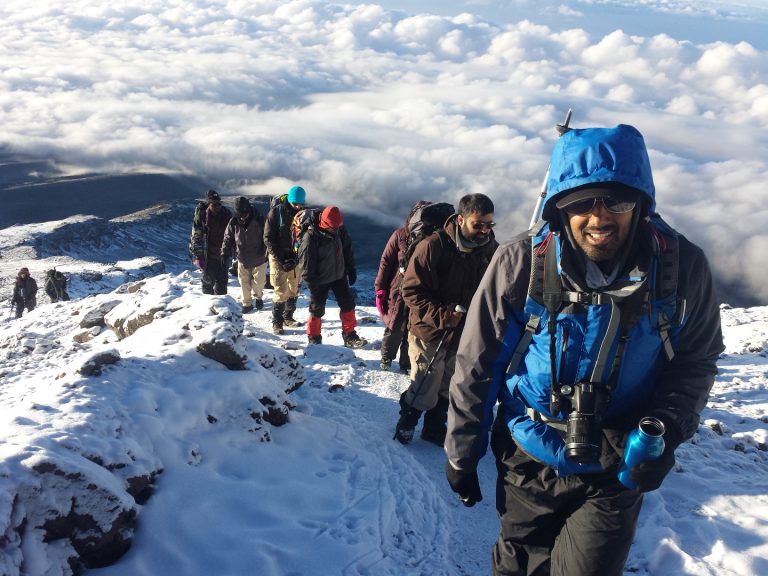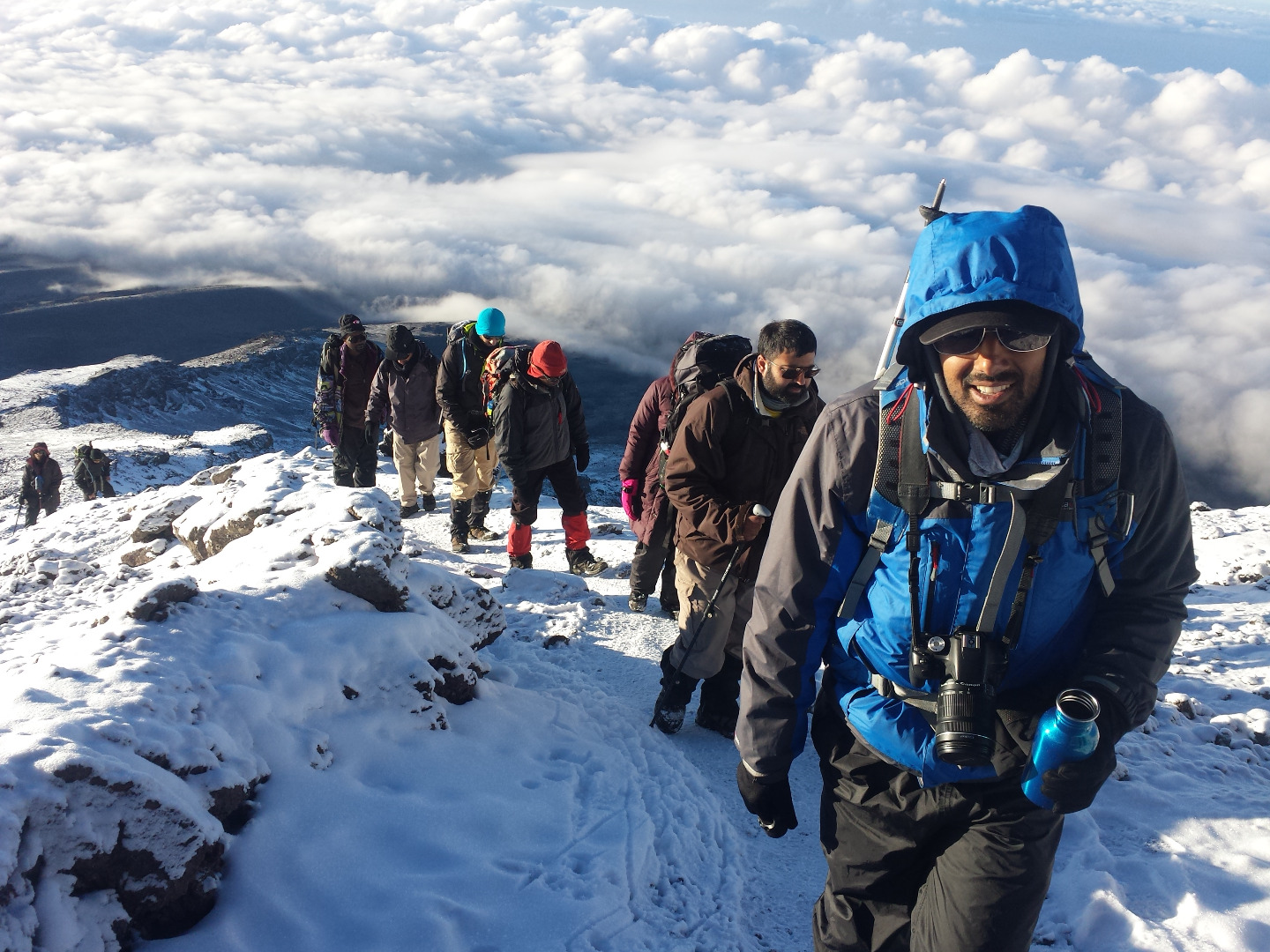
Charity Trek of Mount Kilimanjaro for Moving Mountains
Climb Mount Kilimanjaro and help fundraise for Moving Mountains to carry out all its work in education, health and social welfare, supporting street children and employing teachers, counsellors and social workers.
Overview
Fundraise for Moving Mountains on Mount Kilimanjaro!
Climb Mount Kilimanjaro and help fundraise for Moving Mountains to carry out all its work in education, health and social welfare, supporting street children and employing teachers, counsellors and social workers. This mountain climb for charity will be guided by our staff in Tanzania and also you will be joined by the Moving Mountains Kenya trustees. You can sign up on the MM site to join this special charity challenembark embakr on a mountain climb for charity.
At 5895 metres a Kilimanjaro Charity Climb is a great challenge, not to be underestimated, but feasible for a regular hill walker or active person who’s looking to combine a high mountain adventure with the magic of a trip to Africa, whilst raising funds for some amazing projects in wonderful communities. As a charity trek it is well known but for good reason, it’s simply a fantastic climb to the roof of Africa and a really enjoyable challenge.
Since we are a mountaineering company we can give you excellent advice from your first phone call, throughout your fundraising and pre trek period, throughout your mountain climb for charity to the summit of Kilimanjaro and home again. We can organise a post trek safari or a visit to some the charity projects, there are lots of options for you when you climb a mountain for charity with Adventure Alternative!
This climb is via the 7 day Machame route, which is a camping route and we hope for a team of up to twenty five in total.
Moving Mountains’ work includes educational support programmes, construction and development of school facilities and vital community infrastructure, support for health programmes and medical centres, environmental projects, capacity building work and support for organisational development, vocational training and employment and economic development initiatives. So as well as taking part in a truly magical trek of a lifetime to the top of the highest mountain in Africa you’ll also help us to continue to move mountains for disadvantaged children, families and communities across the world.
What Our Adventurers Think:
I would like to say on behalf of all of our party a big thank you for the excellent organisation of our recent climb of Kilimanjaro. From the minute we arrived in Moshi till the moment we left I cannot fault the organisation whatsoever.
Castro was extremely helpful and runs a tight ship in Moshi. The guides were absolutely excellent Lipman, Kamanda and Cornel in particular with Edward, Eugene, Tomy and Richard providing in some cases personal services to some weaker members of the group. They all provided a safe, secure and enjoyable experience for all of us.
Charity Climb of Mount Kilimanjaro Itinerary
This is our advertised date for the start of the trip and is the day which you should arrive into Tanzania. Most people fly into Kilimanjaro airport either directly or via Kenya. Others travel overland from Kenya. The advertised date is the date you should arrive and we can collect you from Kilimanjaro airport or assist you to travel from Kenya. Overnight in Keys Annexe Hotel in Moshi Town.
Briefing day in Moshi Town, meet the AA Tanzania staff and have time for hiring equipment or relaxing in the hotel.
Transport to Machame Gate (1 hour). Registration. Trek to Machame Camp through beautiful montane forest on good path. Camp overnight at the edge of the forest.
Machame Camp to Shira Plateau uphill through thinning forest and onto a huge volcanic plateau. Camping is more exposed here with great views of the summit massif.
Shira Camp to Barranco Camp traversing the mountain over two valleys and skirting the base of the summit massif. High desert environment with amazing rock formations, quite exposed to the weather, dropping into the Barranco Valley right beneath the Western Breach. This day ascends a maximum of 700 metres but the net gain is only about 100 metres.
Barranco Camp to Karanga Valley, starting with a scramble over the Barranco Wall and over a further two valleys to get to this open campsite with great views of the Heim Glacier. Another up and down day but no net gain in height, which is all good for acclimatisation.
Karanga Valley to Barafu Camp, now heading more directly upwards towards the open rock and colder temperatures. This is the average freezing level on the mountain and Barafu means ‘ice’. Camping in amongst the rocks and an early night.
Night-time ascent on rock and scree, occasional snow, to the crater rim and the summit. Cold temperatures with windchill. Final slope to the crater rim is steeper and has loose scree. Descend in sunlight to Barafu for early lunch, and then walk to Millennium Camp, normally arriving mid-afternoon.
Descending through the lush forest to Mweka Gate where you sign out and pick up the summit certificate. Legs will be tired! Meet Castro at the gate for transport back to the hotel, arriving normally at about 2pm. The gate is where tips are handed out and you say goodbye to the mountain staff. A hot shower and an afternoon relaxing before an overnight in the hotel
Depart Tanzania or onward travel to charity project or Safari
Ready for an Adventure of a Lifetime?
Choose a scheduled date or contact us to set up private dates or a bespoke itinerary. The minimum deposit is £100.00 and the balance is due four weeks before travel.
Fixed Itineraries
No upcoming trips found.
Private Itineraries
Our Charity Climb of Kilimanjaro Experts
Castro has been the Director of AA Tanzania for twenty years now and is well known and respected in Moshi. From Zulu descent, his infectious laugh and calm manner has been a big help to many hundreds of our clients over the years. He also understands the company ethos of looking after the staff well and is a popular employer in the town. With our support he is able to pay excellent salaries, provide training in first aid and altitude, and ensure that everyone is happy in their...
Charity Climb of Mount Kilimanjaro Cost £3045.00
Adventure Alternative is organising the logistics of this trip at a discounted rate and the total figure includes a fundraising target of £1000.00 for Moving Mountains. You can go to the Moving Mountains site and register for the trip there, and you can either fundraise for the whole amount. Or you can pay for the logistics part of the trip yourself in which case you can sign up here and set up a fundraising page separately for the £1000.00 target.
INCLUDES
- Full ground price for the Machame Route
- Accommodation in Moshi for 3 nights in the Keys Annexe Hotel (twin, B&B)
- Jeep or coach transport to the mountain gate from and to Moshi
- Park fees, camping fees and park rescue fees
- Park certified guides (ratio of 1:4) and assistant guides/company reps
- Porters and cooks, plus equipment and tents for them
- All camping equipment including sleeping tents with mattresses
- Meals on the mountain – fresh food, 3 meals per day
EXCLUDES
- The fundraising target of £1000.00 for Moving Mountains
- International airfare to Kilimanjaro Airport (JRO)
- Airport transfers (£40 / $50 per vehicle one way) must be requested in advance through the office – pay in advance or cash in-country
- Tanzanian Visa
- Vaccinations and malaria tablets
- Personal expenses
- Travel insurance
- Lunch and dinners in Moshi
- Tips – £80 paid in local currency only to Castro Capelo for distribution at exit gate
Payments
A deposit of £100 is required on booking to secure your place and we ask that the remaining balance (trip price minus the deposit) is paid in full six weeks prior to your departure. You can make interim payments any time.
Kilimanjaro Daily Altitude Gains
Our itinerary on the mountain is designed to give you the most effective rate of acclimitisation and therefore to promote your safety and enjoyment. You can read more about the effects of altitude and how to manage them on our corresponding information page, see links to the right.
| Day | Start | High Pt | Sleep | |
| 3 | 1830m | 3000m | 3000m | |
| 4 | 3000m | 3850m | 3850m | |
| 5 | 3850m | 4560m | 3950m | |
| 6 | 3950m | 4600m | 3950m | |
| 7 | 3950m | 4200m | 4600m | |
| 8 | 4600m | 5895m | 3800m | |
| 9 | 3800m | 3800m | 1830m |
Why Us?
- We have a 95% success rate of achieving Kilimanjaro’s summit, and a 100% safety record.
- All our guides are personally trained by Gavin Bate, Company Director, Mountaineer and Everest Guide. They have each been working for us for between 10 and 15 years.
- We do not contract out our trips, we employ full time staff, offering job security and good benefits, and we are continually improving our quality service year on year.
- All the staff in our UK office have climbed Kilimanjaro so you can chat to people who understand what it is like to go up for the first time, before you go.
- We are passionate about responsible tourism and our company supports sustainable development in Tanzania and Kenya in a real way.
- We have a number of national awards for responsible tourism in recent years.
Choose a scheduled date or contact us to set up private dates or a bespoke itinerary. The minimum deposit is £100.00 and the balance is due four weeks before travel
What's It Like To Climb Mount Kilimanjaro for Charity?
The terrain on Mt Kilimanjaro varies throughout; in a period of seven days, traversing the mountain over 24 miles, ascending from 2000m to 5895m and back down, you will pass through cultivated farmland, equatorial forest and alpine heath, across a lunar-like volcanic desert and up to a glaciated summit. Climbing Kilimanjaro for chairty is not a technical climb and there are no precipitous drops along the way, no rock climbing or specialist equipment needed.
The paths are in good condition and well trodden; some are steeper than others (in particular the Great Barranco Wall is an exciting scramble) and you will most likely meet people all along the way. On summit day the path is mostly scree, which can be loose and unrelenting, especially on the descent when your knees may suffer.
Camps Used When Climbing Kilimanjaro for Charity
Machame and Millennium Camp are on the tree line and have a number of campsites set in small clearings in the forest. You will see a central ranger station and a number of drop-hole latrines. Mobile coverage here and it is quite easy to descend back to the gate if necessary.
Shira Camp is situated on the vast Shira plateau which is a volcanic spill-off from the last explosion some 100,000 years ago. Open and exposed and often dusty with smaller, more fragile plants amongst the rocks. Latrines and Ranger huts are around and the area is so huge it is easy to have some privacy. Meanwhile the Horombo Huts are busy with people and Mawenzi Tarn is very quiet and remote.
Barranco Camp is in a big clearing at the head of the steep valley which drops down into the Umbwe route, with dramatic cliffs around and right below the ice fields of Kibo, a stunning location for a camp.
Karanga Camp is a very open camp on the side of a hillside with great views of the summit massif and the expanse of land beyond the mountain. Many people go direct from Barranco to Barafu, so Karanga is traditionally a bit of half-way stop, but there are still latrines and a Ranger hut here.
Barafu, meaning ‘ice’, is now no longer covered in permanent snow but it is cold and rocky and exposed. People definitely feel the altitude here and you can expect snow and sometimes high wind. The camp sites are dotted amongst nooks and crannies in the rocks, perched on a sort of ridge.
Experience Needed For The Kilimanjaro Charity Climb
Climbing Mount Kilimanjaro is a non-technical trek but it does offer a full mountaineering experience. Experience in hill walking is a benefit but not absolutely necessary, since this is a supported climb. You will have however be outdoors constantly and living in tents so any sort of experience with camping will be useful.
It is not necessary to have any experience of high altitude to climb Mount Kilimanjaro, the important factor will be to go slowly and allow your metabolism to adapt to the lower air pressure and the thinner air.
Support on Mount Kilimanjaro
The staff will carry your main bag up to a maximum weight of 15 kgs plus all the tents, kitchen equipment, food, fuel, tables and chairs. They will cater for all the group needs, providing excellent meals and putting up the tents. The guides will also brief you daily on the climb.
Castro is our Director of Adventure Alternative Tanzania. He organises all the staff, equipment, permits and hotel arrangements. You will have his telephone number, or the staff at the hotel desk can call him for you. He is organiser, translator, problem-solver, advisor and the main link between you and the UK office. He talks to the guides every day on the mountain and can make arrangements while you are up high.
You also have continued support from the main office in Northern Ireland. For charity climbs, we offer additional training and support for groups, in the form of visits and powerpoints and advice on training for the trip.
Charity Climb of Mount Kilimanjaro Kit List
Here’s a look at the basics you’ll need to go on a Kilimanjaro chirity climb. For a detailed kit list, click here.
- Strong, waterproof duffle bag or rucksack for your main gear
- Waterproof day sack of about 30 -40 litres for carrying your daily needs
- Sleeping bag rated down to -10° Celsius or lower if you get cold easily
- Sturdy hiking boots with ankle support, and a sole that does not bend too easily. Gore-Tex lined fabric boots are fine but not quite as warm as leather. Gaiters are advised also.
- Waterproof windbreaker and trousers, preferably breathable, with a hood and big enough to accommodate several layers beneath
- Down jacket or a heavy duty fleece for warmth especially on summit night
- Thermal underwear or long johns for summit night
- Balaclava or insulated warm hat, insulated gloves or mittens and thermal inner gloves
- Sun hat, sun lotion, SPF lip screen and sunglasses
- Trekking clothes – trousers and shorts, shirts and T-shirts, jumper or midlayer fleece, underwear and several pairs of hiking socks, trainers or sandals
- Water bottle and/or bladder (take a protective cover for the mouthpiece) and water purification tablets (optional, iodine-based is fine)
- Head torch with spare batteries
- Trekking poles (especially useful for coming down from the summit)
- Personal wash kit to include a nail brush, moisturising cream, a small towel, tweezers, soap, nail clippers and wet wipes
- Variety of waterproof bags – for dirty clothes, sleeping bag and things to keep dry
- Personal first aid to include aspirin, Nurofen, plasters, Germolene, Immodium, strepsils and prescription medicines for possible gastric problems
- Passport, insurance papers, spending money, air tickets, 2 pin (round) plug adaptor, spare batteries for digital cameras, reading books, diary, pen
PERSONAL MEDICAL KIT
Paracetamol
Ibuprofen
Antiseptic Wipes
Adhesive Plasters
Blister Plasters
Zinc Tape
Insect Repellent
Antihistamine tablets
Sunblock Cream
Water Purification Tablets
Rehydration Sachets
Personal Medication as required:
eg. Anti-Malarials, Asthma Inhalers, Insulin, Epi-Pen etc
Possible Additional Personal First Aid Items
Lip Salve
Throat Lozenges
Latex gloves
Crepe Bandage
Hydrocortisone Cream
Prochlorperazine tablets (for sickness/nausea)
Ciprofloxacin tablets (general antibiotic; prescription required)
Acetazolamide tablets (altitude prophylactic; prescription required)
Note: you must check with your GP for your personal suitability to all medicines and their possible side effects and interactions. Please inform us of the details of all regular medication that you intend to use though the course of your trip and any relevant allergies and medical history related to them. You also need to check the requirements and regulations of the airline and all countries visited in relation to medications. For example; laws governing transport of some pain control medication and the need keep insulin at a suitable temperature, ie not in the cargo hold.
If you’d like to climb a mountain for charity, then please do get in touch as we can make it happen!
Key Information & Guides
General Tanzania Information
Health and Safety Guides
Preparation & Kit Guides
Planning Your Trip
Book Your Adventure of a Lifetime Now
Discover our trips to other Countries
Other Trips You May Enjoy
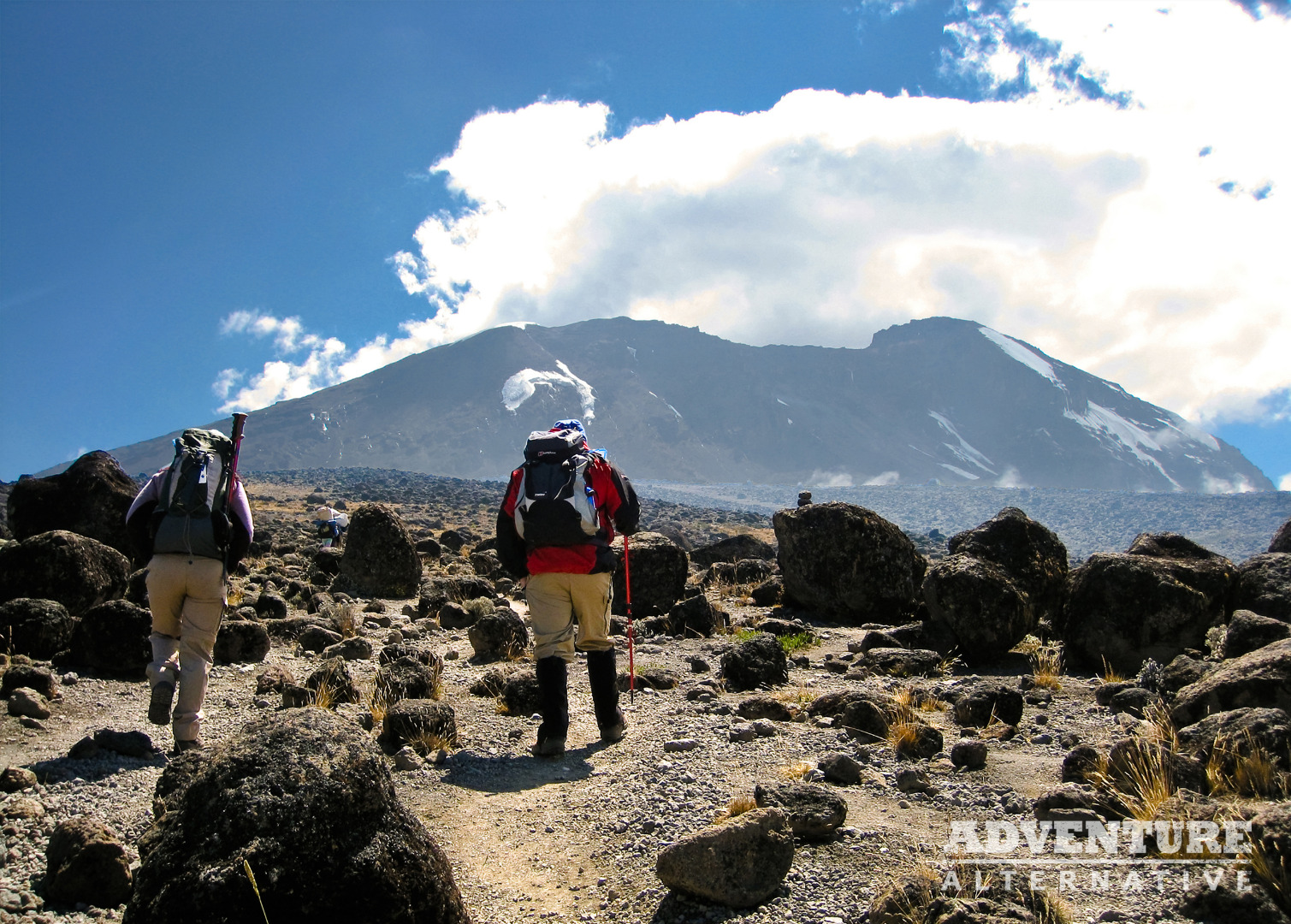
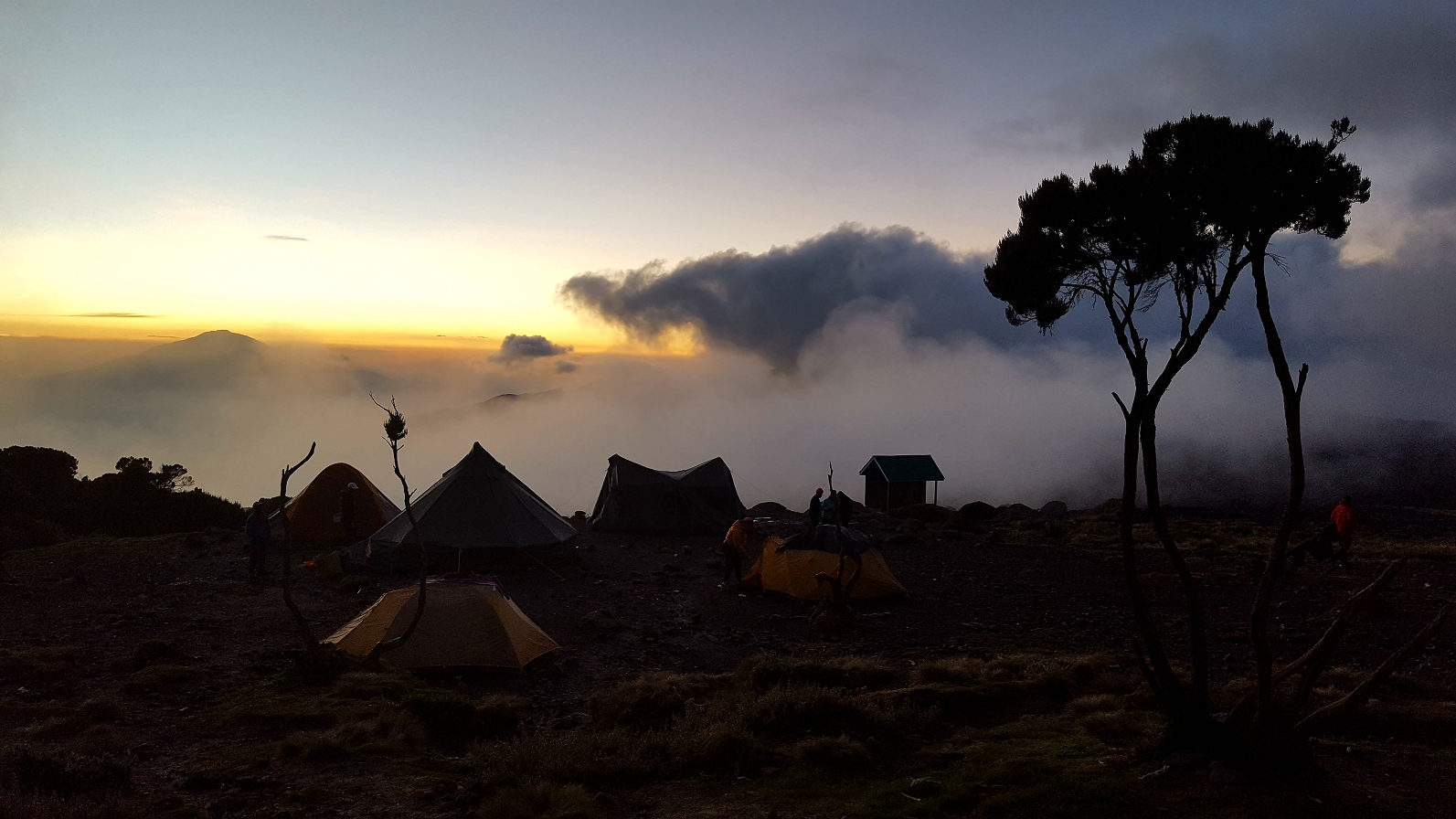
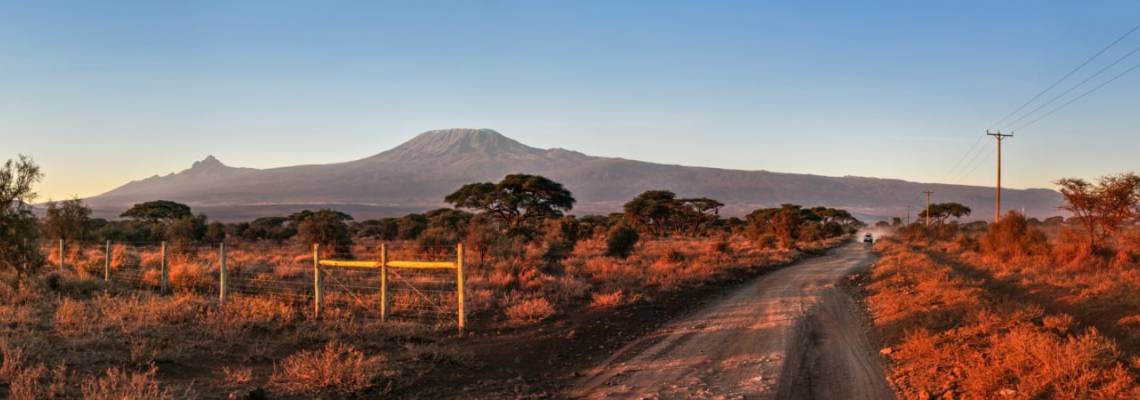
Our Tanzania Posts
We’re dedicated to helping you make the most of your next adventure trekking holiday. That’s why we’ve created our travel blog full of in-depth trekking guides, travel inspiration and other fantastic information. Having done all of these climbs many times already, we want to pass on our wealth of trekking wisdom to you.
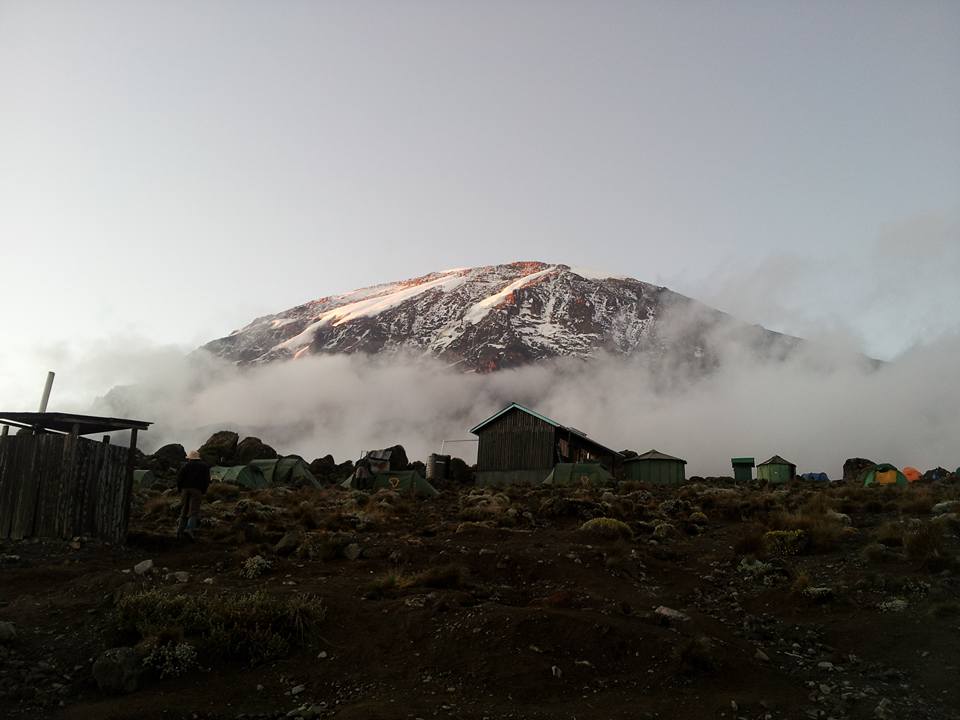
Why Kilimanjaro is a Great Mountain for Any Bucket List
Climbing one of the world’s tallest mountains is not a decision to be taken lightly – it will take endurance, a decent amount of fitness...
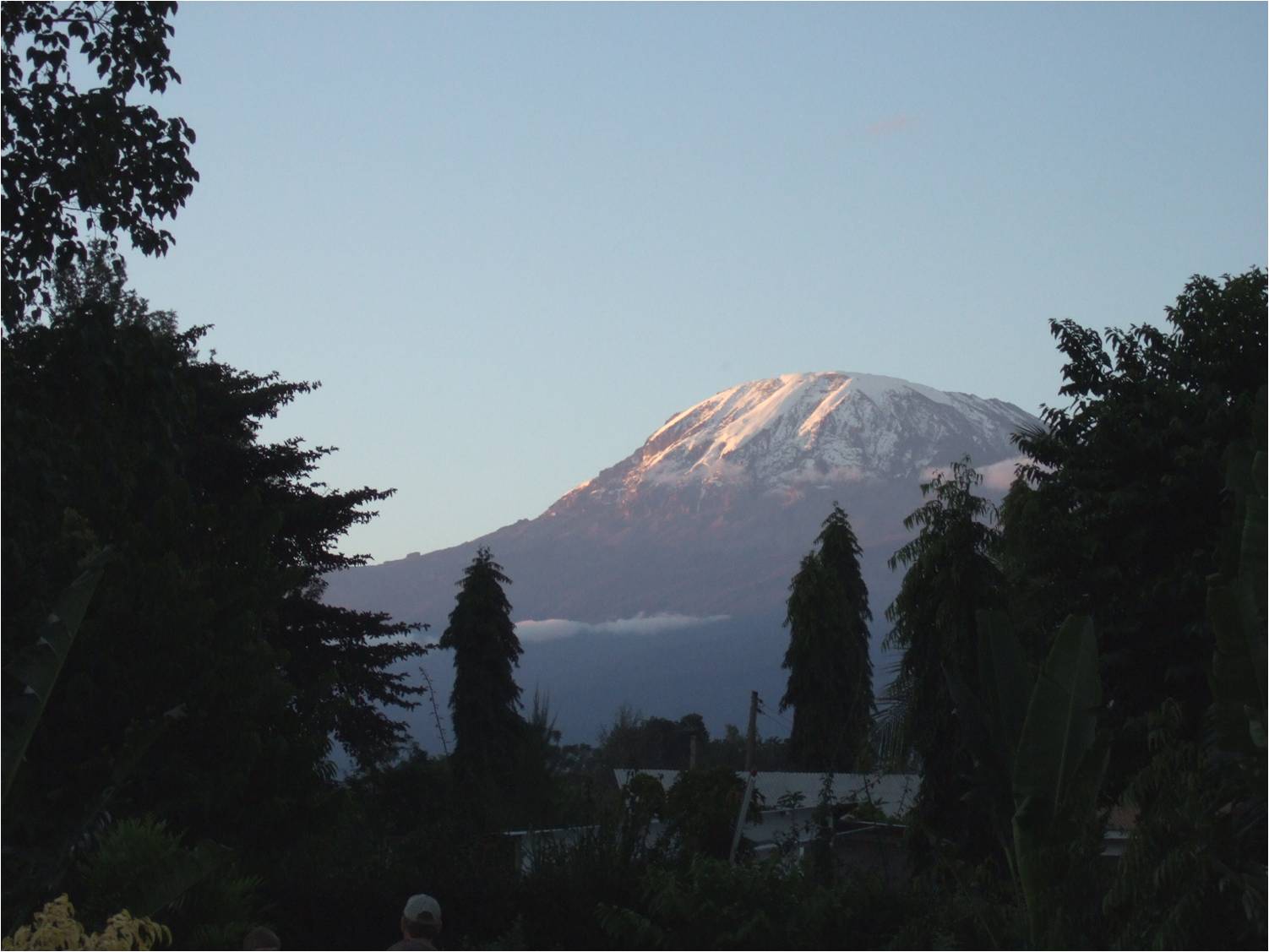
Kilimanjaro Compared to the Other Seven Summits
The 'Seven Summits' is a challenge first proposed and then completed by Richard Bass in 1985. The 7 Summits consists of climbing to the highest...
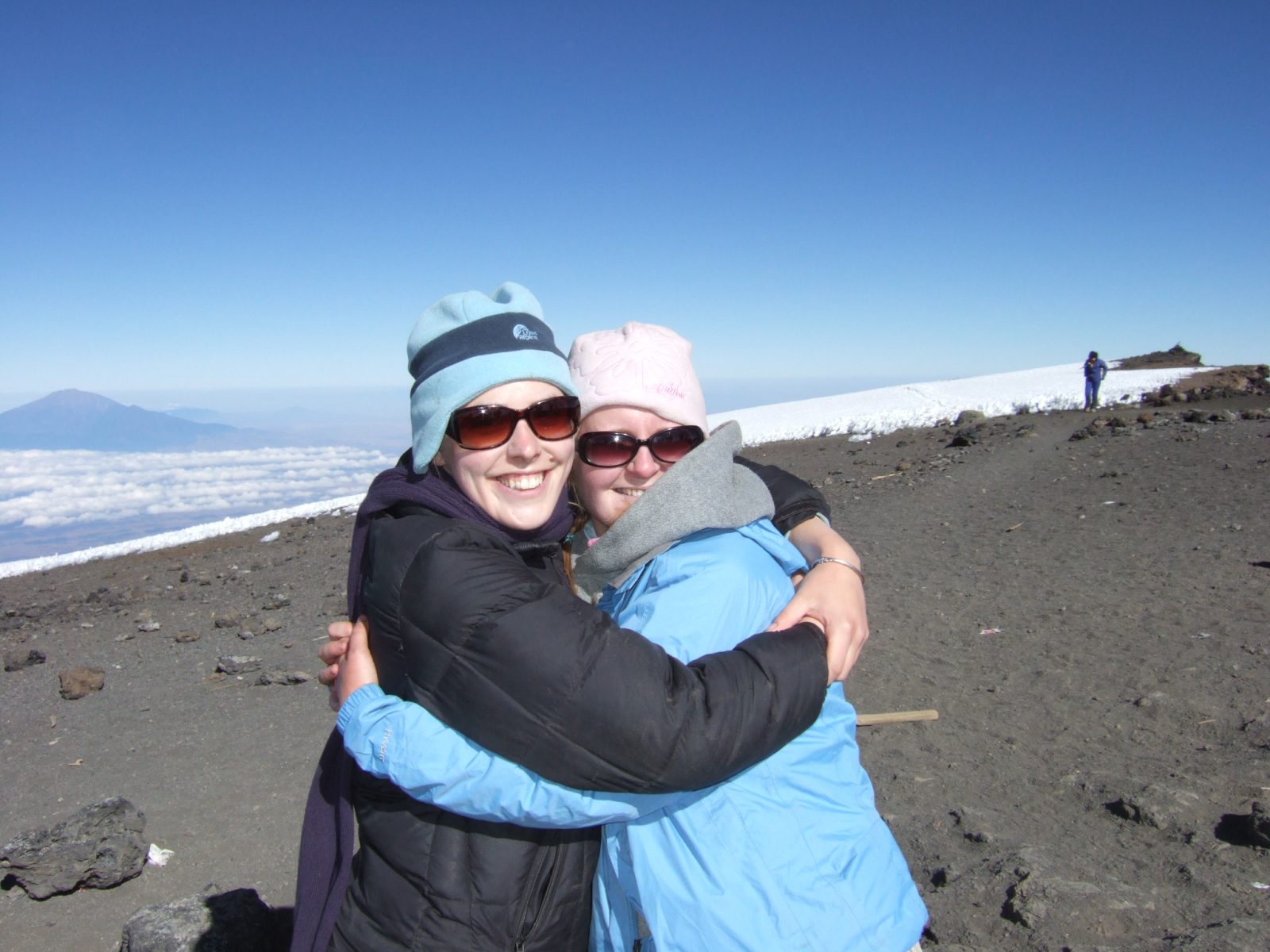
How can I Climb Kilimanjaro for Charity?
We often get asked, ‘how do I climb Mount Kilimanjaro for Charity?’ and the answer is easy, call us to have an initial talk about...
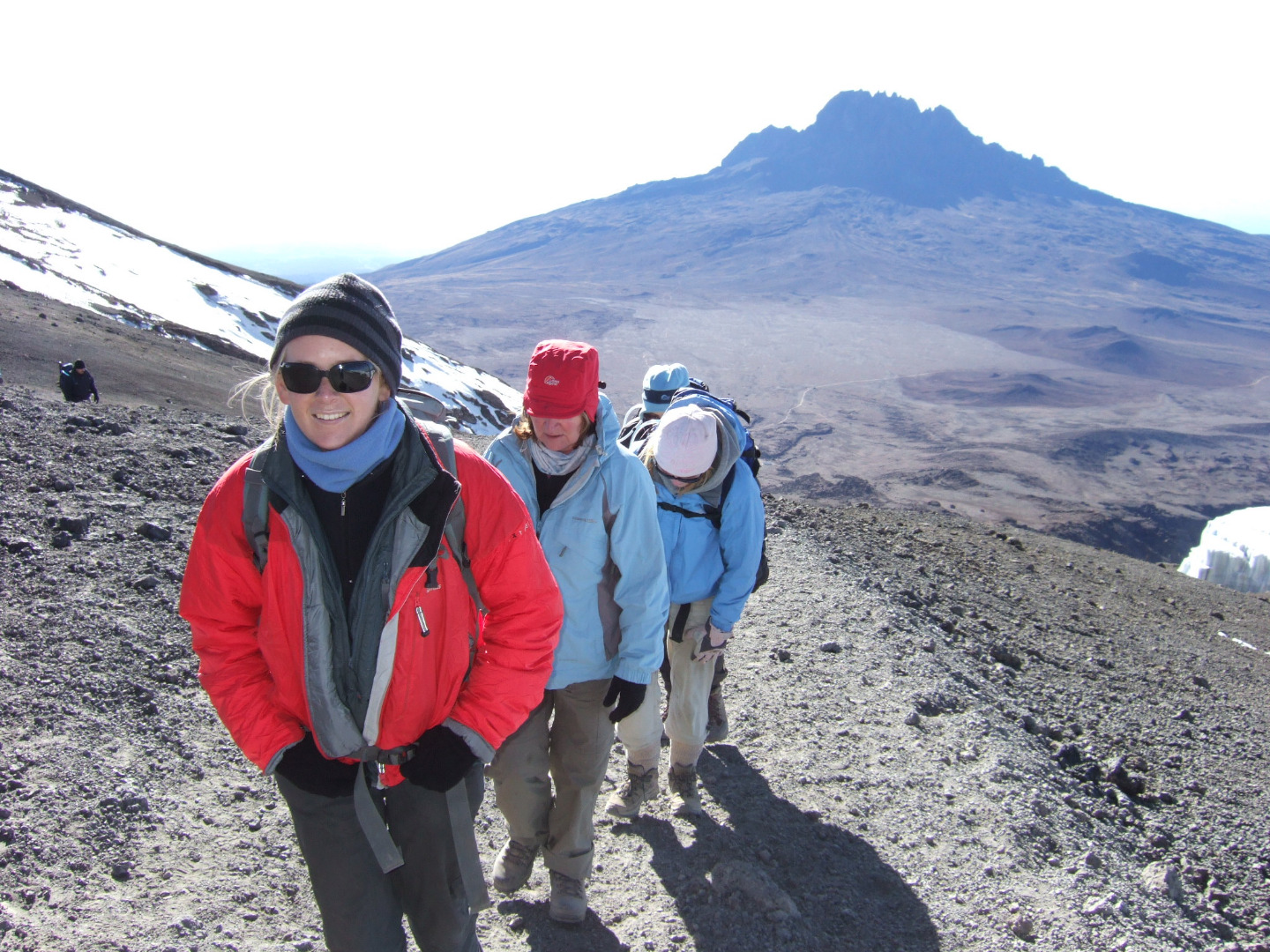
What to Wear on Kilimanjaro
What to wear on a Mount Kilimanjaro Trek is probably the question we get asked most and there is, of course, a kit list for...
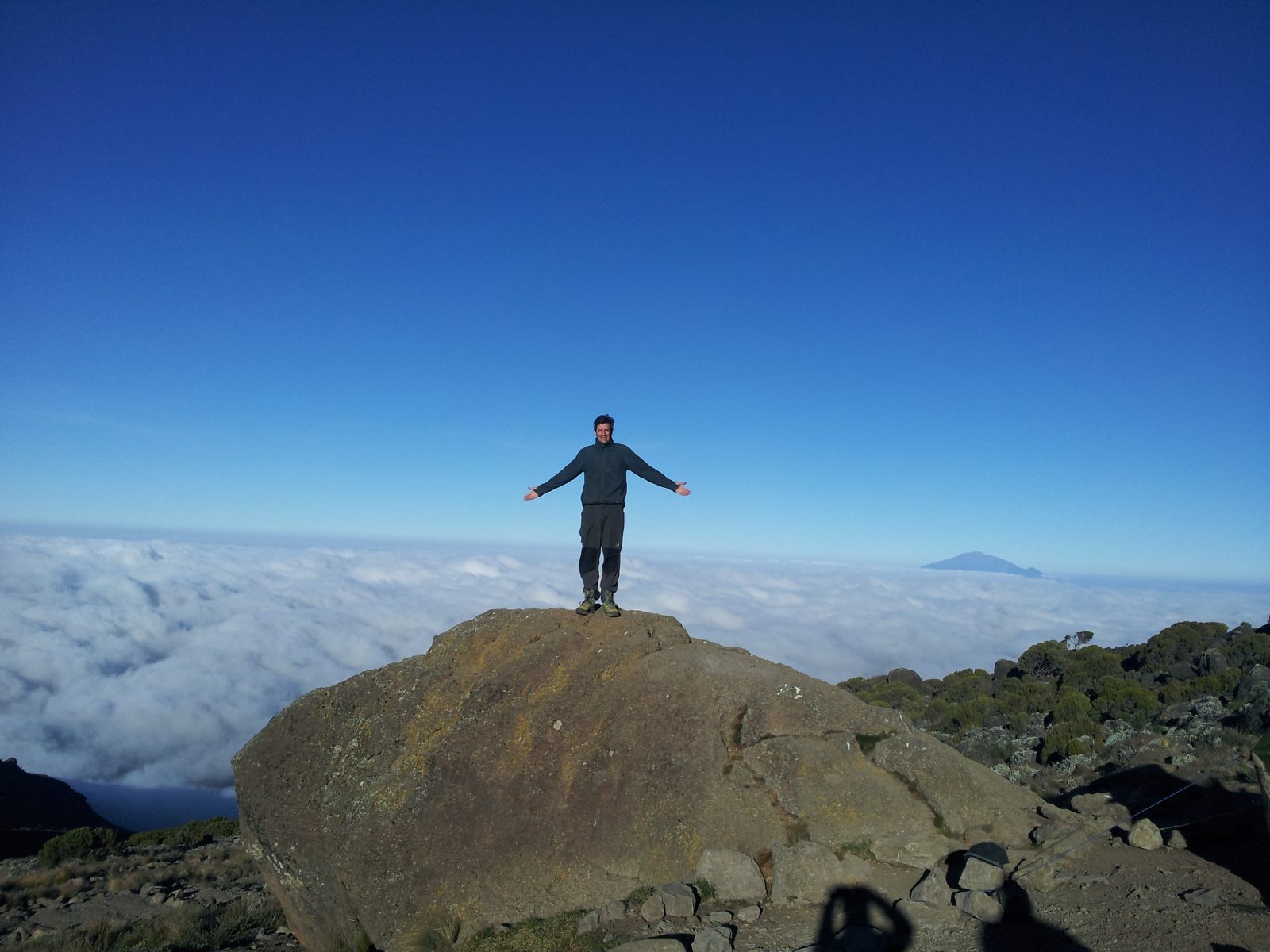
Kilimanjaro Diamox?
Regarding the use of Diamox on a Kilimanjaro climb, there is a tendency now for people to use it as a default drug in order to increase...
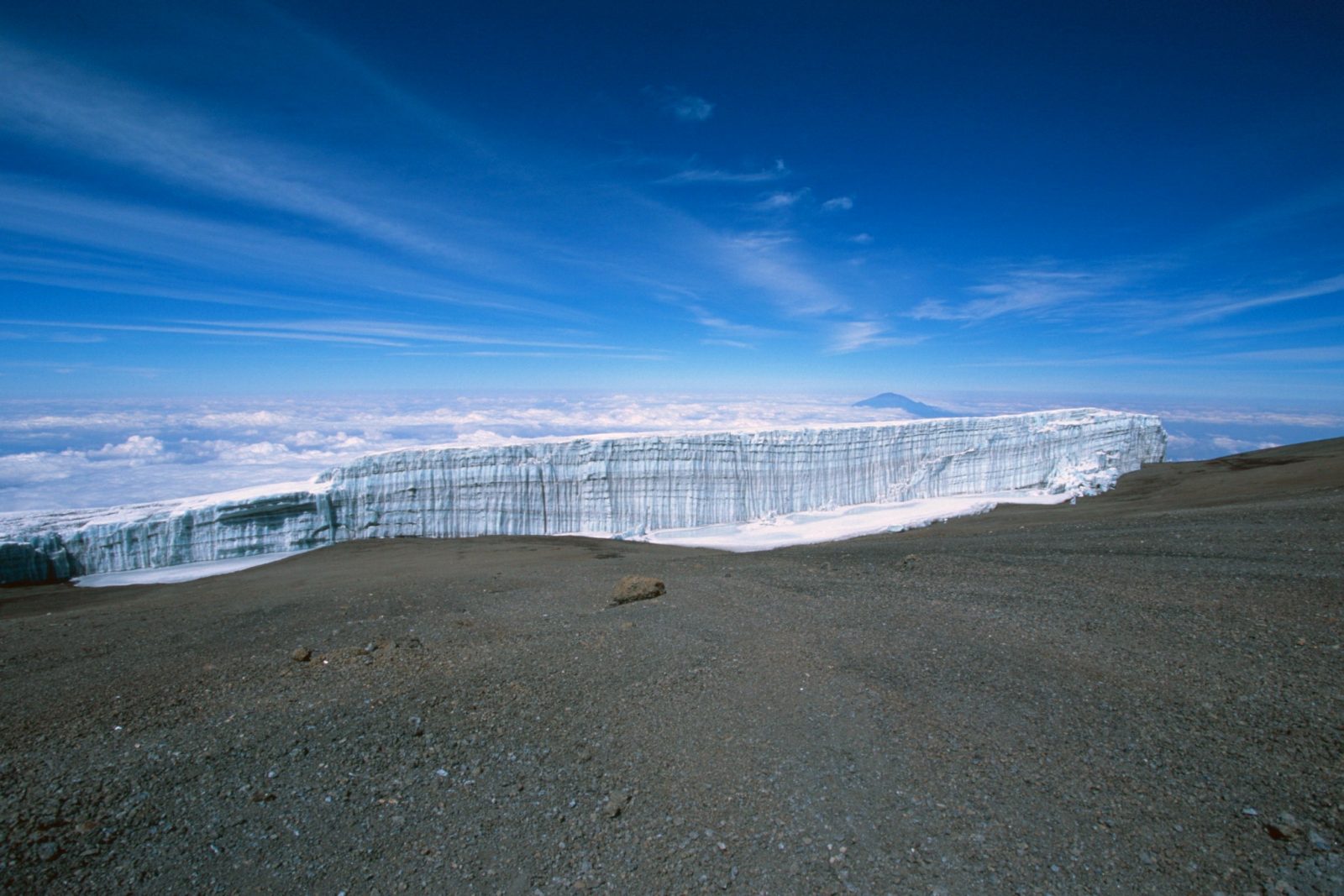
Weather and Seasons on Kilimanjaro
There is a magic about standing on the Roof of Africa. Mount Kilimanjaro, Africa's tallest mountain, stands 5895m above sea level. The climb...

